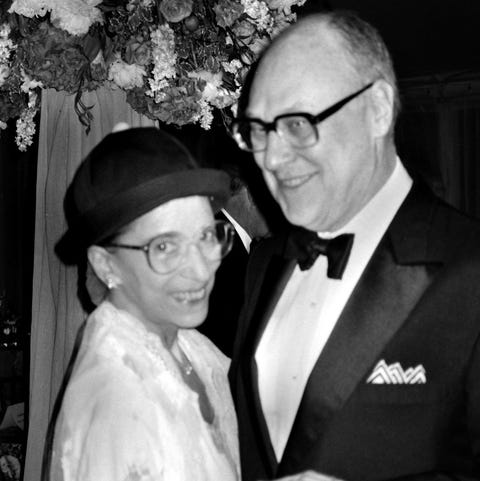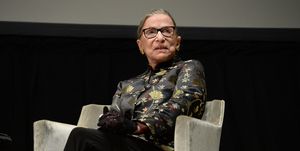Supreme Court Justice Ruth Bader Ginsburg died at age 87 on Friday from complications of metastatic pancreas cancer. Previously, Ginsburg had been treated for colon cancer and pancreatic cancer, as well
as lung and liver cancer.
“Our nation has lost a jurist of historic stature,” Chief Justice John Roberts said in a statement, according to The New York Times. “We at the Supreme Court have lost a cherished colleague. Today we mourn, but with confidence that future generations will remember Ruth Bader Ginsburg as we knew her — a tireless and resolute champion of justice.”
The trailblazing cultural, legal, and feminist icon had been on the Supreme Court since 1993, when she was appointed by President Bill Clinton. She became the second female justice on the bench.
After graduating from law school, Ginsburg became a professor at Rutgers Law School and later worked as a judge on the U.S. Court of Appeals. Throughout her career, she earned a reputation as a feminist and unrivaled passionate advocate for women’s rights. Ginsburg was the director of the Women’s Rights Project at the American Civil Liberties Union and argued several gender discrimination cases in front of the Supreme Court in the 1970s.
She met her husband, tax lawyer Martin Ginsburg, during her undergraduate years at Cornell University. In a 2014 interview with ELLE, four years after Martin died, Ginsburg said: “He was the only boy I had ever met who cared that I had a brain. In the '50s, too many women, even though they were very smart, they tried to make the man feel that he was brainier. It was a sad thing.” The couple had two children together, Jane and James Ginsburg; Jane is a professor at Columbia Law School while James is the founder of Cedille Records.

Ginsburg gained even greater notoriety in recent years, due in part to her stirring dissents. Her life and career have been immortalized in pop culture, from the book The Notorious RBGto the biopic On the Basis of Sex to the documentary RBG.
During the Obama administration, some suggest Ginsburg step down so the president could name successor—advice she rejected. During the 2016 election, she was critical of Donald Trump, who in turn called her for resignation in a tweet saying “her mind is shot.” Ginsburg later released this statement: “Judges should avoid commenting on a candidate for public office... In the future I will be more circumspect.”
Trump is looking to appoint a woman as his third high-court nominee, according to Mother Jones. Among the president's top choices are Amy Coney Barrett, who clerked for Supreme Court Justice Antonin Scalia, and Britt Grant, a former clerk to Brett Kavanaugh.
According to NPR, in the days leading up to her death she dictated a statement to her granddaughter Clara Spera: “My most fervent wish is that I will not be replaced until a new president is installed.”




